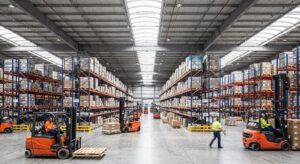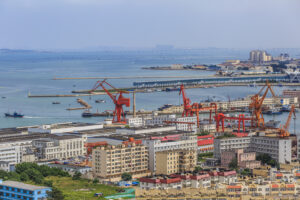Vineet Malhotra, Co-founder & Director, Kale Logistics Solutions, shares how Kale Logistics is transforming India’s land port operations through its digital LPMS solution. With real-time cargo visibility, automation, and biometric access, Kale is unlocking efficiency, security, and seamless cross-border trade.

Kale Logistics advancing digital solutions to enhance land port efficiency and security
Smart borders
Maritime trade dominates global cargo movement, but for landlocked nations, land ports remain the vital link. With rising regulations, these ports are evolving into strategic trade hubs. As multimodal corridors gain momentum, land ports are emerging as critical enablers of seamless cross-border connectivity, playing a central role in shaping the future of global trade logistics.
Why Digital land ports?
Manual processes, paper-based documentation, and overlapping inspections at land borders can delay shipments by hours or even days. Digitalisation reduces clearance times, improves predictability, and boosts competitiveness. Also, smuggling and under-invoicing are rampant at land borders. Automation and data sharing help plug revenue leakages and reduce fraud. Smart systems allow better profiling, risk assessment, and coordination across agencies (customs, immigration, plant/animal inspections, etc.).
Initiatives like the African Continental Free Trade Area (AfCFTA), ASEAN Connectivity, and South Asia Subregional Economic Cooperation (SASEC) hinge on seamless land connectivity — which requires harmonised, digital border systems.
Challenges to address
Enhancing land port operations demands tackling several challenges. Many ports struggle with infrastructural issues like poor internet connectivity, unstable power supply, and lack of basic IT systems. Institutional silos persist, with border agencies often failing to share data or build trust. Additionally, uneven development between neighbouring countries leads to incompatible systems and legal frameworks. Resistance to change—fuelled by corruption, limited awareness, and inadequate training—further hampers the successful implementation of digital technologies at border points, affecting efficiency and seamless cross-border trade.
Roadmap for land ports
By 2030–2050, land ports are expected to become fully paperless, featuring mobile-enabled systems that streamline processes for truckers and traders. These ports will utilise AI assistance to conduct real-time risk assessments based on cargo and driver history, enhancing safety and efficiency.
Advanced geofencing and satellite tracking technologies will ensure that cargo remains on its designated route, preventing diversions and delays. Biometric verification and smart gates will enable rapid clearance, reducing processing times to mere minutes. Furthermore, land ports will be seamlessly connected to regional trade platforms, facilitating e-certification, green lanes, and digital payments, thereby promoting greater trade efficiency and sustainability.
Kale Logistics: Redefining land port operations
Kale Logistics Solutions is revolutionising land port operations in India with its advanced Land Port Management System (LPMS). This smart solution features automated access control, real-time cargo visibility, and paperless processes, along with seamless QR code and biometric-enabled entry and exit systems. By streamlining operations, LPMS will empower industries, minimise delays, and enable frictionless cross-border trade. The system is poised to significantly reduce logistics costs, boost operational efficiency, and enhance security and regulatory compliance—ultimately driving economic growth and strengthening regional connectivity.











